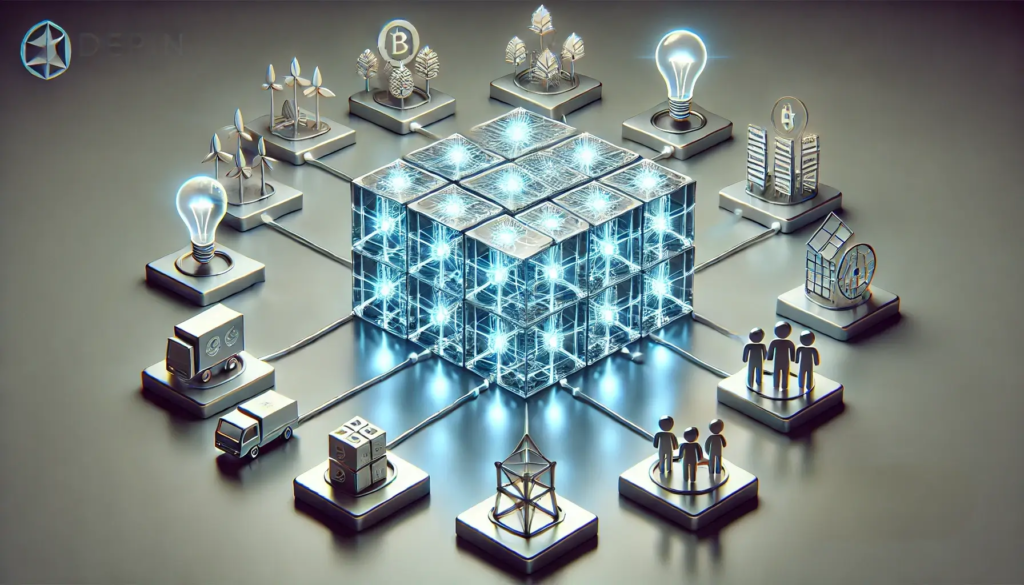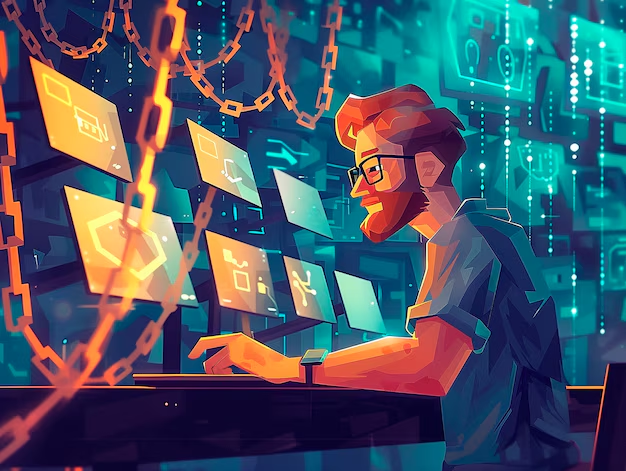The intersection of artificial intelligence (AI) and blockchain technology is generating immense excitement and innovation. However, each of these groundbreaking technologies also grapples with significant limitations. Blockchain is renowned for its security and transparency, yet it suffers from issues such as scalability, efficiency, and flexibility. On the other hand, AI is revolutionizing various industries with its predictive capabilities but is often viewed with skepticism due to data privacy concerns and the opacity of its decision-making processes.
Imagine a future where these technologies complement each other, enhancing blockchain’s efficiency and scalability through AI’s analytical prowess, while AI operates transparently and accountably, utilizing blockchain’s immutable record-keeping. This vision is taking shape with emerging decentralized AI initiatives, including platforms like SingularityNET, Ocean Protocol, and Fetch.ai. These projects illustrate how the convergence of AI and blockchain can address each other’s most pressing challenges, ultimately transforming the digital landscape into one characterized by transparency, user empowerment, and trust.
How AI Can Address Blockchain’s Challenges

Despite its strengths, blockchain faces technical hurdles that hinder its broader adoption. Issues related to efficiency, scalability, and adaptability are particularly pronounced in resource-intensive models like proof-of-work (PoW). AI can play a crucial role in overcoming these challenges.
Efficiency and Scalability
One of the most significant issues with blockchain, particularly PoW systems, is their inefficiency and high energy consumption. AI can analyze network demand and predict usage patterns, enabling dynamic energy management that minimizes waste and optimizes performance. Techniques such as “sharding” can be enhanced with AI, dividing blockchain data across multiple nodes to facilitate parallel processing and accelerate transaction speeds. By merging AI’s adaptability with blockchain’s immutable integrity, we can significantly improve scalability—essential for widespread industry acceptance.
Optimizing Smart Contracts
Smart contracts, the self-executing code on the blockchain, are essential yet often vulnerable to exploits that can jeopardize user funds. AI, particularly through machine learning, can analyze smart contract code to identify and rectify vulnerabilities before deployment, greatly enhancing security. This predictive capability builds confidence in smart contracts, reinforcing blockchain’s promise as a reliable, automated trust mechanism.
Enhancing Security and Compliance
AI can further enhance blockchain security by continuously monitoring transactions for anomalies and suspicious activity. Advanced algorithms can identify potential threats in real time, allowing for swift action to protect assets. Additionally, AI can streamline compliance with regulatory standards by automating audits and reporting, making it easier for blockchain applications to meet legal requirements.
Improving User Experience
AI can significantly enhance user experience within blockchain ecosystems by offering personalized insights and recommendations. Through data analysis, AI can simplify complex blockchain interactions, facilitating smoother transactions and driving greater adoption and user satisfaction.
Predictive Maintenance for Blockchain Networks

Blockchain systems are intricate and require ongoing maintenance. AI can provide predictive analytics by analyzing historical data to identify and address potential bottlenecks or vulnerabilities before they escalate. This proactive maintenance not only boosts reliability but also solidifies blockchain’s role as a resilient foundation for a decentralized future.
How Blockchain Can Address AI’s Challenges
While AI shows remarkable promise, its centralized nature raises substantial concerns regarding transparency and accountability. Blockchain’s decentralized framework can effectively mitigate these challenges, making AI more ethical and user-centric.
Data Privacy and Ownership
AI models typically rely on large datasets, often collected without user consent. Blockchain’s decentralized model allows users to maintain control over their data while securely sharing it with AI applications. This fosters a safer, more ethical digital environment.
ALSO READ :- https://virenbrew.com/airline-returns-to-loss-with-rs-987-crore-deficit-quarter-ended-september-2024/
Enhancing Transparency and Accountability
Traditional AI models often operate as “black boxes,” leading to opaque decision-making processes. Blockchain’s transparent ledger can track every phase of an AI model’s development, providing insights into data inputs and training outcomes. This transparency is crucial in sensitive fields such as healthcare and finance, where fairness and accountability are paramount.
Securing AI Training Data
The effectiveness of AI depends heavily on the quality of its training data, which is susceptible to tampering. Blockchain’s tamper-proof storage enhances data integrity, reducing biases and manipulation risks. This bolstered reliability enables users to trust that AI’s decisions are based on verified, accurate data.
A New Era of Trust and Innovation with Decentralized AI
The convergence of AI and blockchain is not just a theoretical concept; it represents a profound shift in how technology can empower individuals and foster trust. Projects like SingularityNET, Ocean Protocol, and Fetch.ai exemplify this transformative potential by prioritizing user control, transparency, and ethical AI development.
In this new digital landscape, we may no longer have to choose between privacy and innovation or efficiency and ethical responsibility. As decentralized AI continues to evolve, it will reshape our interactions with technology, laying the groundwork for a future characterized by transparency, empowerment, and trust. This journey is just beginning, and those observing its progress are witnessing the dawn of a significant transformation in the digital world.
Conclusion
The integration of AI and blockchain promises to overcome significant challenges in both fields. By enhancing efficiency, transparency, and user control, decentralized AI initiatives like SingularityNET, Ocean Protocol, and Fetch.ai pave the way for a more ethical, innovative digital landscape, fostering trust and collaboration for a brighter future.
Follow us on INSTAGRAM – https://www.instagram.com/virenbrew/
Follow us on TWITTER (X) – https://x.com/VIRENbrew
Follow us on LINKEDIN – https://linkedin.com/in/viren-brew-230415328/
Follow us on FACEBOOK – https://www.facebook.com/profile.php?id=61565127137999
Follow us on YOUTUBE – https://www.youtube.com/@VIRENbrew

No responses yet